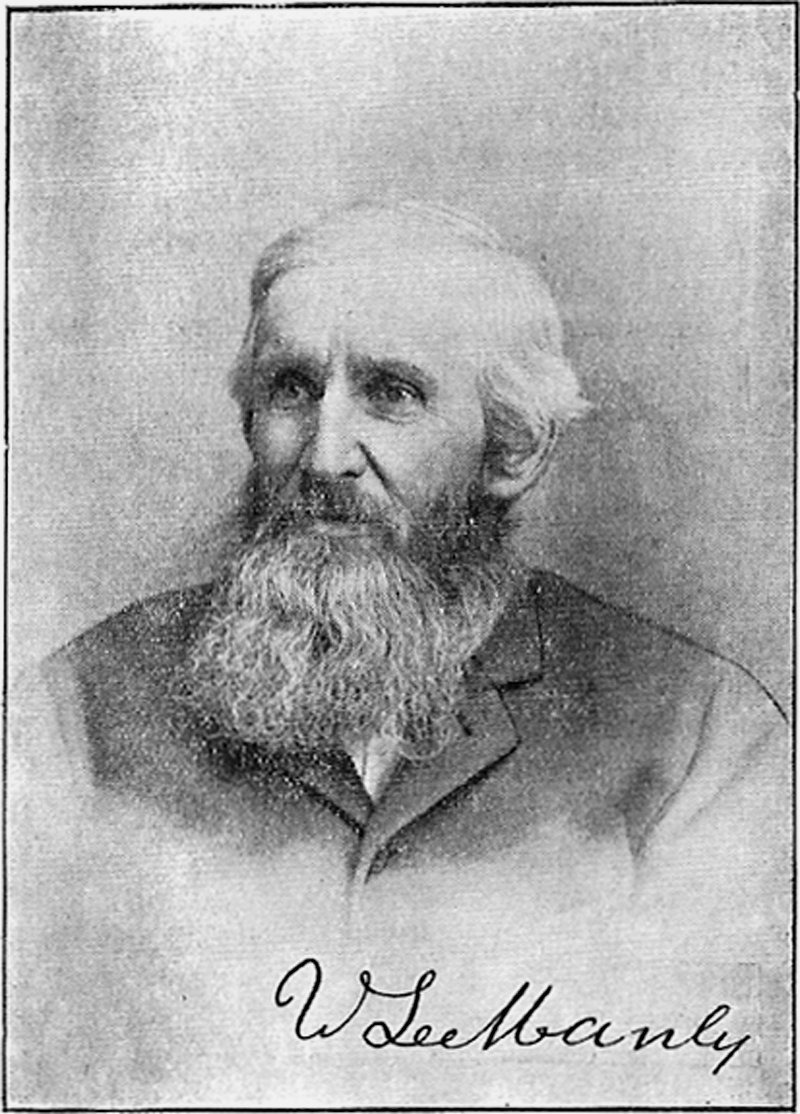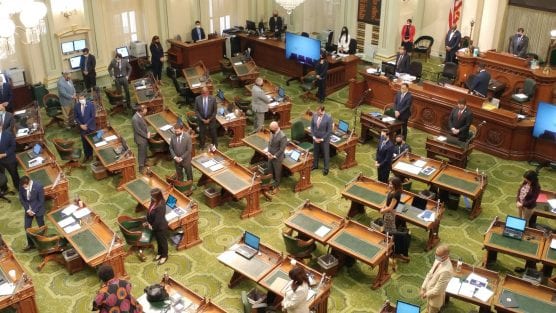SACRAMENTO — United by disdain for the wholesale cuts plotted in the next budget proposal, a bipartisan mix of California lawmakers on Tuesday ripped Democratic Governor Gavin Newsom’s plan to plug the state’s estimated $54 billion pandemic-induced shortfall.
Convening for the first time since March and in a rarely used format, dozens of Assembly members combined to cast the governor’s proposed budget as disastrous for school children and poor and elderly residents. Both Democrats and Republicans decried Newsom’s across-the-board cuts and warned that vulnerable populations were getting the shaft at the worst possible time.
Assemblyman Jim Wood, a Santa Rosa Democrat, called proposed cuts to senior programs and social health care coverage in the budget proposal “penny wise and pound foolish” in an emotional rebuke of the governor’s budget.
“If you are aged, poor and disabled this budget is devastating,” Wood told his colleagues. “It hits those who can least afford it and who have the smallest voices.”
For most of his first term the governor has enjoyed the luxury of working with a friendly Legislature, as Democrats hold supermajorities in both chambers. But Tuesday’s historic hearing signaled Newsom’s budget proposal could be on the ropes as lawmakers lined up to criticize his spending bill.
Calling the Assembly as a whole committee for the first time since 1995, Speaker Anthony Rendon noted the pressure of budget planning during a pandemic and gave all 80 members a chance to sound off on the pending plan, which must be approved in less than three weeks.
“The committee of the whole process will allow each of us to discuss the budget freely without some of the limitations on discussion imposed by normal parliamentary procedures,” Rendon said during the opening of the five-hour long hearing.
The last time the Assembly used the parliamentary procedure, known as the Committee of the Whole, was in 1995 to discuss the jarring and historic financial collapse of one of California’s largest and richest counties.
Orange County became the largest municipality to file for bankruptcy in December 1994 after its treasurer essentially gambled away billions of dollars with a then little-known investment strategy known as leveraging.
Betting that federal interest rates would continue to drop, County Treasurer Bob Citron in the early 1990s borrowed against the county’s public funds to buy more investments and quickly turned $7 billion into a $20 billion fund. The enormous returns were short-lived, however, as federal interest rates ballooned in 1994 and Wall Street came to collect on its loans and subsequently zap the county’s portfolio.
Three decades later, the coronavirus pandemic prompted California’s lower house to take the rare step of convening as a committee to dissect another shattered budget. The hearing functioned as a mix between a traditional floor session and committee hearing, with lawmakers each allowed four minutes to give speeches and ask the witnesses questions.
In what has become routine operating procedure since the Capitol reopened earlier this month, a nurse checked the temperatures of members of the public upon entry while reporters were escorted individually to gallery seats.
Down on the Assembly floor, lawmakers and witnesses were separated and required to wear face coverings unless speaking.
One of the witnesses was nonpartisan Legislative Analyst Gabriel Petek, who pegged the state’s deficit between $18–$31 billion depending on the pace of California’s recession recovery. He testified that some of Newsom’s emergency spending in recent months carries “significant policy changes” and advised lawmakers to increase oversight going forward.
“When it comes to the proposals from the COVID-19 spending, we have some serious reservations about the degree of latitude the [Newsom] administration is seeking from the Legislature,” Petek said.
Before recessing in March, lawmakers essentially gave Newsom full control over a $1 billion emergency relief fund, but two months later his administration estimates pandemic-related spending could surpass the $8 billion mark.
Newsom believes the state is in worse financial shape than Petek does, and has given lawmakers a proposed budget that assumes a record-high $54 billion deficit. He claims many of the devastating cuts could be shielded with the help of Congress and President Donald Trump.
California Director of Finance Keely Bosler on Tuesday detailed the sweeping cuts the Newsom administration says are necessary to pass a balanced budget and warned the state could be in the hole for several years. She reiterated Newsom and House Speaker Nancy Pelosi’s calls for the U.S. Senate to pass additional federal relief for cash-strapped California and other states.
“Only the federal government has the capacity to mitigate those difficult reductions state and local governments are going to have to make to pass budgets in the next several years,” Bosler said.
Assemblyman Devon Mathis, a Visalia Republican, said expecting more federal relief is unwise considering the contentious relationship between the state and the Trump administration.
“This government has run out of other people’s money,” Mathis said. “We have filed over 62 lawsuits against the feds; talk about biting the hand that feeds you.”
Meanwhile, several Democrats are concerned the multibillion-dollar education hit in Newsom’s budget proposal will cause long-standing damage to the state’s K-12 schools.
Assemblyman Kevin McCarty said the proposed rate cuts to childcare and preschool workers would be a “death knell” for early education, while Assemblywoman Lorena Gonzalez said if schools can’t reopen on a full-time basis, the economy will suffer.
Last week the state’s largest school districts told Newsom and the Legislature that decreased funding could cause them to start the next school year late.
“I worry about any economy coming back when half the workforce can’t actually work because they have school-aged children at home. It’s a problem,” said Gonzalez, a San Diego Democrat.
The majority used their four minutes to criticize various pieces of Newsom’s proposal but most did not offer ways to backfill the loss of revenue caused by the coronavirus. The few options suggested by lawmakers included a new sales tax on electronic cigarettes, raising taxes on the state’s wealthiest and legalizing sports gambling.
With a constitutional deadline approaching, Assemblywoman Blanca Rubio urged lawmakers to push back on the budget proposal and find a way to preserve services for California’s most at-risk residents.
“The theme throughout this pandemic has been we’re in this together,” said Rubio. “But devastating disproportionate cuts don’t feel like we’re all in this together.”
Like this:
Like Loading...
Related





 Tweet This
Tweet This Facebook
Facebook Digg This
Digg This Bookmark
Bookmark Stumble
Stumble RSS
RSS


























REAL NAMES ONLY: All posters must use their real individual or business name. This applies equally to Twitter account holders who use a nickname.
0 Comments
You can be the first one to leave a comment.